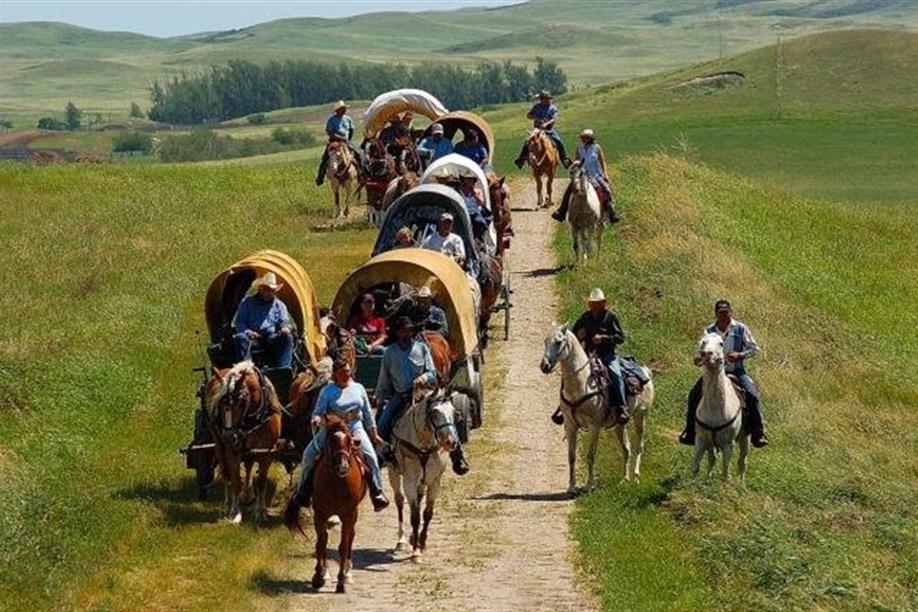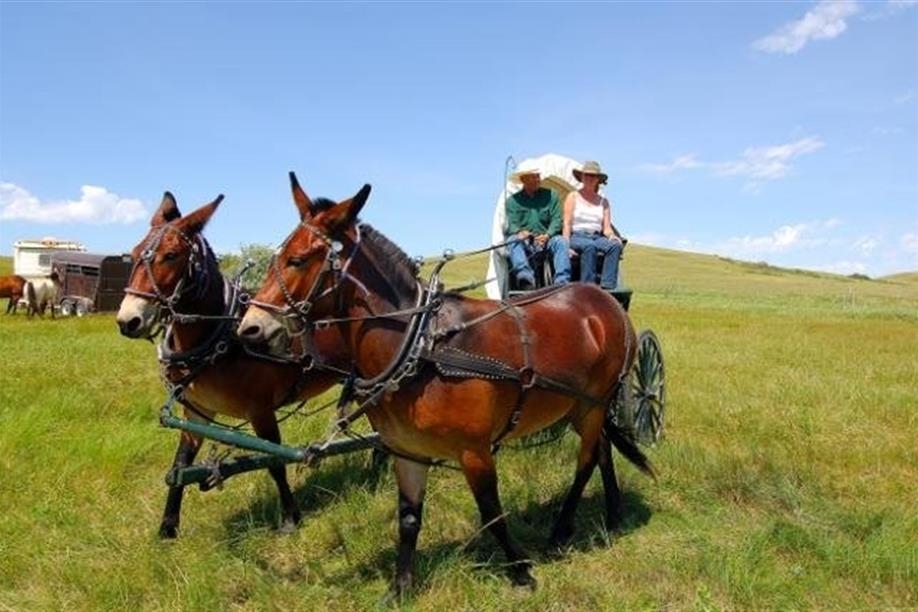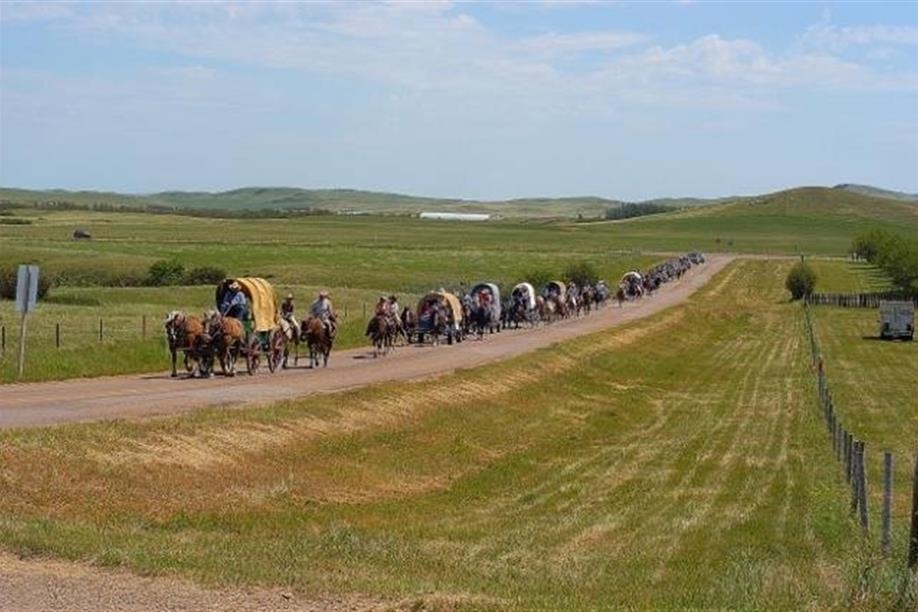Wood Mountain Post Provincial Historic Park
8 km S of the village of Wood Mountain on Hwy 18.
Wood Mountain Post was established as a North West Mounted Police (NWMP) post in 1874 to patrol the Canada/United States border and police whiskey traders, horse thieves and cattle rustlers.
The post rose to prominence in 1876, when Chief Sitting Bull and 5,000 members of the Sioux (Lakota) First Nation took refuge in Canada after the Battle of Little Bighorn.
Wood Mountain Post Provincial Park features two reconstructed buildings that tell the story of Major James Walsh of the NWMP and his negotiations with Chief Sitting Bull. Interpretive staff are on hand from June to September; school programming is available. There are picnic facilities on site and camping is available at nearby Wood Mountain Regional Park.
The post rose to prominence in 1876, when Chief Sitting Bull and 5,000 members of the Sioux (Lakota) First Nation took refuge in Canada after the Battle of Little Bighorn.
Wood Mountain Post Provincial Park features two reconstructed buildings that tell the story of Major James Walsh of the NWMP and his negotiations with Chief Sitting Bull. Interpretive staff are on hand from June to September; school programming is available. There are picnic facilities on site and camping is available at nearby Wood Mountain Regional Park.




































